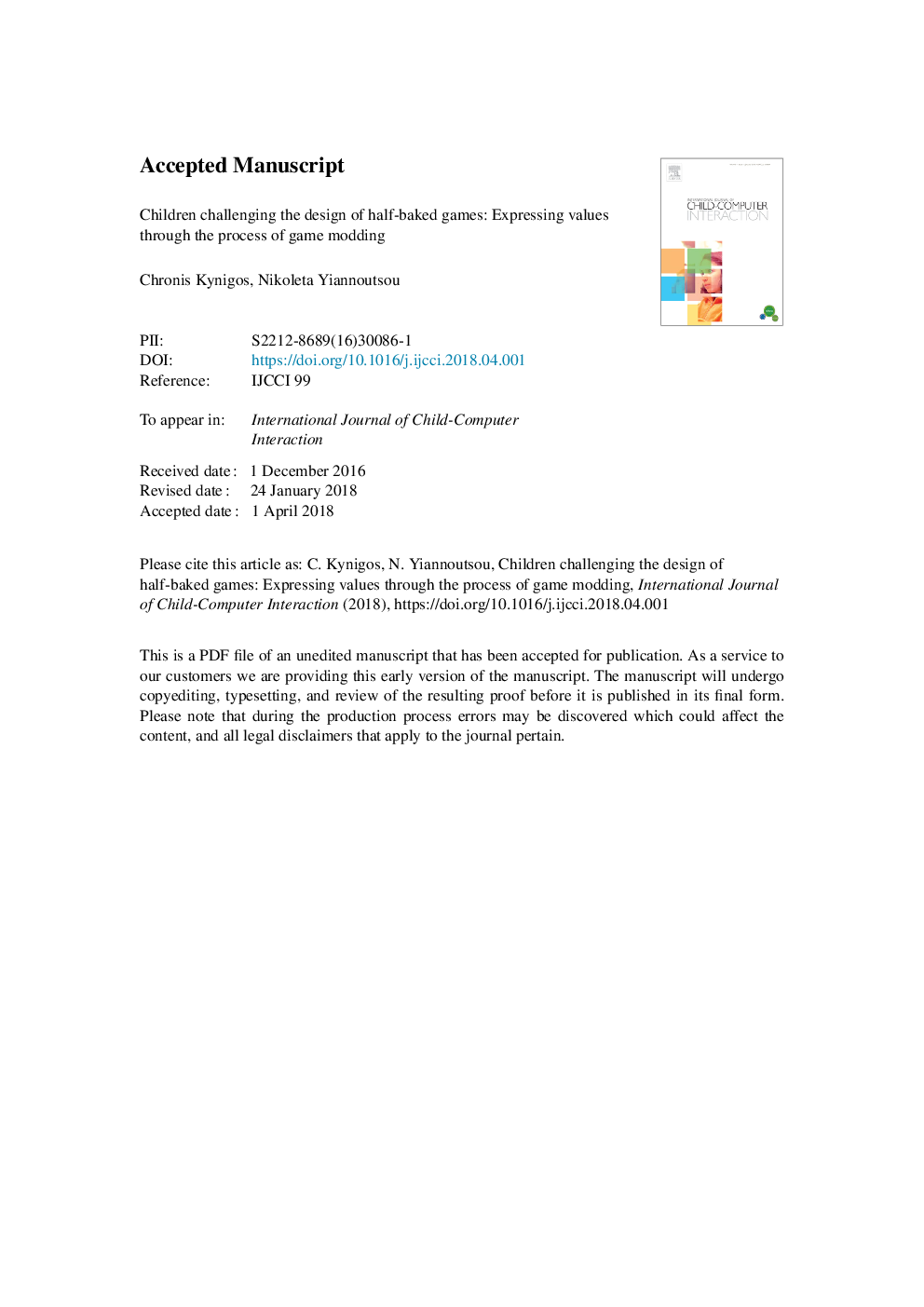| Article ID | Journal | Published Year | Pages | File Type |
|---|---|---|---|---|
| 6795217 | International Journal of Child-Computer Interaction | 2018 | 33 Pages |
Abstract
In this paper we look at the potential educational value of placing children in a dual role of identifying and changing rules and values embedded in digital games by hacking them. Children's participation in the design of learning technologies is a difficult challenge to address, due to limitations in children's domain-knowledge around which these technologies are developed. Their role in the design process is thus usually limited to that of a user or tester. In this paper we discuss the role of children as “hackers” of what we call 'half-baked' games. By hacking a pedagogically engineered half-baked game in order to improve or change it, children are expected to challenge the values, the mechanics and the rules of a fully functioning, but faulty, or inappropriate game originally designed to provoke students to modify it. This discussion uses an example of children modding such a game provocatively called 'PerfectVille', which was specially designed to raise problems around the issue of urban sustainability. The game itself was designed with the use of a GIS rule-based authoring tool for game design called 'sus-x'. The children grappled with both value-laden issues and concepts embedded in the tool they used. The issue of taking children's values into account but also of helping them to build understandings of wider contested societal values can be addressed by studying the process by which children design and change games affording such experiences. It also illuminated their own perspective and values, which they embedded in the games.
Keywords
Related Topics
Physical Sciences and Engineering
Computer Science
Human-Computer Interaction
Authors
Chronis Kynigos, Nikoleta Yiannoutsou,
